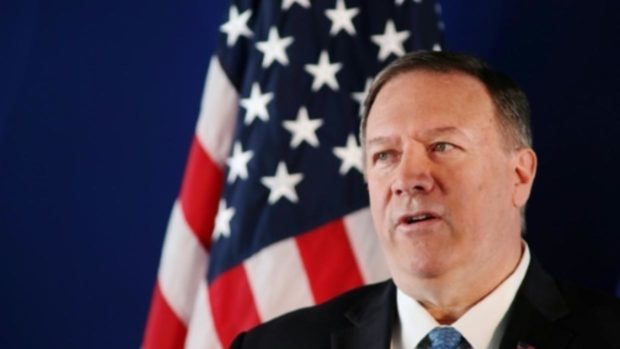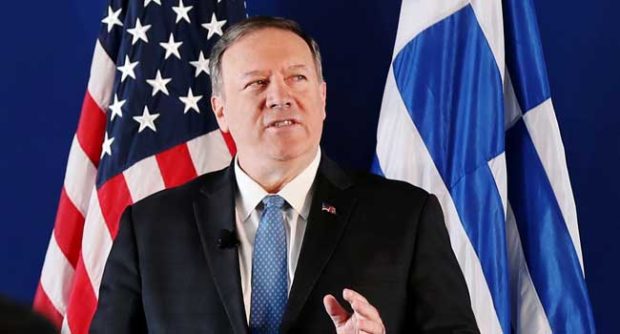US Curbs Chinese Officials’ Visas
The United States said Tuesday it would curb visas for Chinese officials until Beijing ends its “repression” of Uighurs and other Muslims in the western region of Xinjiang, a day after imposing commercial restrictions.
The one-two punch by President Donald Trump’s administration marks the most forceful attempt by a foreign power to address what some rights groups call a historic crisis in Xinjiang, and comes amid a range of feuds between the United States and China.
“China has forcibly detained over one million Muslims in a brutal, systematic campaign to erase religion and culture in Xinjiang,” Secretary of State Mike Pompeo wrote on Twitter.
“China must end its draconian surveillance and repression, release all those arbitrarily detained and cease its coercion of Chinese Muslims abroad,” he said.
In an accompanying statement, Pompeo said that the State Department would restrict visas granted to the government and ruling Communist Party officials involved in “detention or abuse” of Uighurs, Kazakhs or members of other predominantly Muslim ethnic groups in Xinjiang.
The order will also affect their family members, including children who may be seeking to study in the United States.
The State Department did not specify the names of officials who would be affected.
But lawmakers have specifically asked for action against Chen Quanguo, the Communist Party chief for Xinjiang.
Reputed within the party for his handling of minority groups, the earlier led iron-fisted policies aimed at crushing dissent in Tibet.
– Defying Chinese protests –
The US Commerce Department on Monday blacklisted 28 Chinese entities including video surveillance firm Hikvision and artificial intelligence companies Megvii Technology and SenseTime over their involvement in Xinjiang.
Beijing voiced its “strong dissatisfaction and resolute opposition” over the move and denied any human rights abuses in the restive region.
“These accusations are nothing more than an excuse for the United States to deliberately interfere in China’s internal affairs,” foreign ministry spokesman Geng Shuang said in Beijing.
Rights groups say more than one million Uighurs and other Muslims are being held in a vast network of camps in Xinjiang aimed at homogenizing the population to reflect China’s majority Han culture.
Witnesses say that China has sought to force Uighurs to drop core practices of Islam such as fasting during Ramadan and abstaining from alcohol and pork.
China, after initially denying the camps, describes them as vocational schools aimed at dampening the allure of Islamist extremism and violence.
Authorities have cracked down especially hard since 2009 when nearly 200 people died in riots in Xinjiang’s capital Urumqi, which has seen an influx of Han Chinese.
The violence was sparked by news of a factory brawl in southern China in which two Uighur migrant workers were killed.
Pompeo has previously called China’s treatment of Uighurs one of the “worst stains on the world” and likened the camps to actions by Nazi Germany.
But few Muslim leaders have spoken out against a rising China with the exception of President Recep Tayyip Erdogan of Turkey, which has linguistic and cultural connections with the Uighurs.
Related Articles
Rights advocates also say that Trump has been inconsistent in exercising pressure over human rights, with the tycoon president warmly embracing authoritarian leaders of allies such as Egypt and Saudi Arabia.
The actions on Xinjiang come as a trade war that shows no signs of abating between the United States and China, the world’s two largest economies, which have imposed tariffs on billions of dollars worth of each other’s goods.
At the United Nations last month, Trump also warned China that the United States was watching Hong Kong, where months of swelling protests have demanded that Beijing respect the city’s semi-autonomous status.



